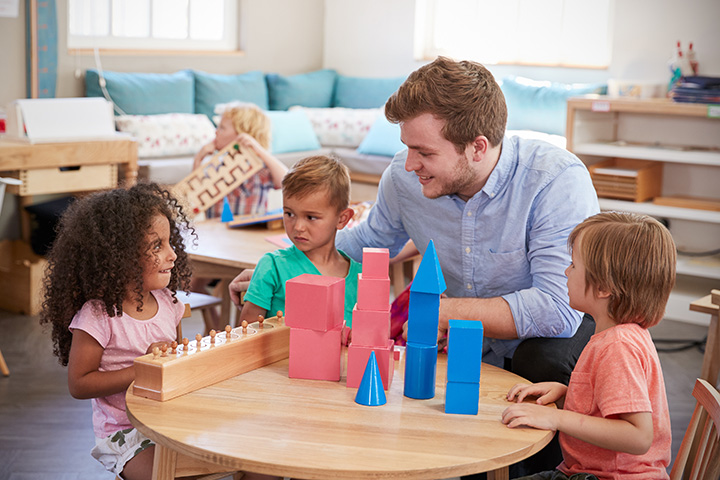A study of South Carolina’s public Montessori schools shows students outperformed their peers across demographic groups in reading and math, but the results also revealed something more important.


A study of South Carolina’s public Montessori schools shows students outperformed their peers across demographic groups in reading and math, but the results also revealed something more important.
An Evaluation of Montessori Education in South Carolina’s Public Schools, funded by the state’s Education Oversight Committee and the Self Family Foundation, found students in the state’s nearly 50 Montessori schools not only scored six to eight percentage points higher on state tests, they “also bested their non-Montessori peers in the soft skills inherent to Montessori education: creativity, good behavior, and independence,” The74Million reports.
The study collected information between 2012 and 2016—principal surveys, 126 unannounced observations, state testing data, attendance and disciplinary records, and creativity assessments—and compared data with students in traditional public schools, taking into account race, gender, and income.
“Low-income, non-low-income, black, white, male and female students in Montessori schools were all subgroups that showed significantly more progress than their non-Montessori peers,” according to the education site. “The researchers didn’t find significant differences for Hispanic or ‘other race’ students, but this could be because of the small sample size.”
The findings are a sign that the Montessori approach to educating the whole child, including social and emotional needs, both improves academics and fosters responsible, self-directed learners.
“Nationally, we’ve been fighting the achievement gap for years and have found few things that close that gap, so the fact that low-income Montessori kids fared better than their low-income peers . . . that says a lot,” said Ginny Riga, Montessori consultant for the South Carolina Department of Education.
“It’s hard to measure enjoyment of school and responsibility and independence, but anyone who has worked for any length of time in Montessori will tell you that’s what happens to the children.”
In The Content of Their Character, a summary of research into character formation in a wide variety of schools published by the Institute for Advanced Studies in Culture, sociologist David Sikkink notes in that “The Montessori model views ‘the child as one who is naturally eager for knowledge’ and ‘values the human spirit and the development of the whole child—physical, social, emotional, cognitive.'”
“Montessori pedagogy places a strong emphasis on student participation and ownership of their education,” he explains.
The more personalized approach means students can choose their learning materials every day, from blocks to drawing or reading, with teachers working as guides, rather than leading the way with structured lessons, The74 reports.
While the South Carolina Montessori schools are mostly attracting attention for academic achievement, what is really noteworthy is the distinct focus on the whole person and commitment to nurturing responsible learners. It’s a very intentional ethos and culture that cultivates responsible children who demonstrate good behavior and meaningful learning.
The Montessori Academy offers a video that explains how Maria Montessori’s pioneering vision for early education came to life, and how it’s since impacted millions of students across the globe.